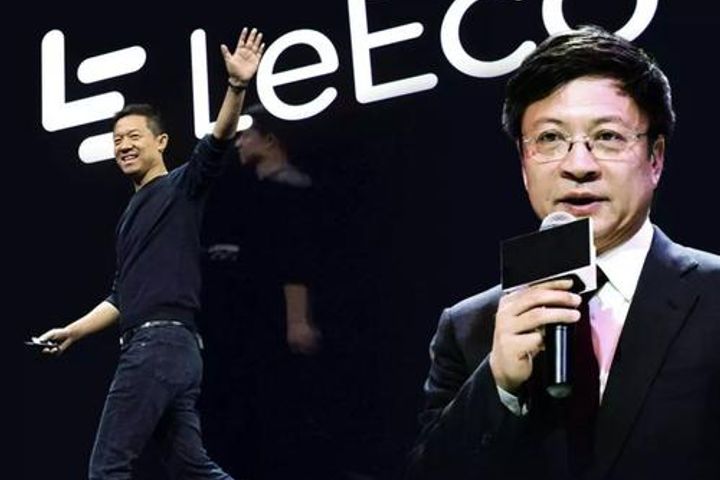 Jia Yueting Admits All Pledged Shares Are Overloaded With Debt, Leshi Says
Jia Yueting Admits All Pledged Shares Are Overloaded With Debt, Leshi Says(Yicai Global) March 2 -- Embattled entrepreneur Jia Yueting's stock-pledged repo transactions have all triggered the mandatory liquidation threshold stipulated in the agreement between the firm and its founder, violating the deal, said financially-troubled Leshi Internet Information and Technology Corp.
This means that all the shares pledged by Jia have been overloaded with debt, the company said, adding it has confirmed it with him through e-mail communication. In other words, more than 99.5 percent of the Leshi shares he holds have triggered the mandatory liquidation threshold and are likely to be sold by the mortgagee institution at any time.
Sun Hongbin, new chairman of Leshi and chairman of major property developer and key investor Sunac China Holdings Ltd, is expected to take over some of them, a senior market analyst told Yicai Global.
The impact of this crisis can be analyzed from three perspectives, the analyst suggested. To start with, all the Leshi shares held by Jia would be diluted, because they have reached the mandatory liquidation threshold and he didn't put in additional security. Therefore, after calculating the depreciation, the securities dealer would sell those pledged shares in due time.
The second question is why the mortgagee institution hasn't implemented mandatory liquidation, the analyst said. Some suggested it is because regulators worry that mandatory liquidation could have a huge impact on the Growth Enterprises Market, or GEM, and so they may be giving instructions, the analyst added.
Moreover, if the mortgagee institution wants to sell the Leshi shares pledged by Jia, it also needs to comply with the new rules regarding the reduction of shareholdings in the secondary market. According to the new rules, within three months, the reduction cannot exceed 1 percent of the total equities of the company, and for block trade, the reduction cannot exceed 2 percent of the total equities.
Third, changes at the shareholder level of Leshi cannot resolve the current cash flow predicament. Such a move would not bring any operational changes. If Leshi wants to improve its operation, the substantial shareholders must inject new capital into Leshi or find new profit growth drivers, the analyst commented.
Sunac China is currently the second largest shareholder of Leshi. Sunac China now controls the operation and management of Leshi. Will Sun take over Leshi shares when the institution sells them?
The senior market analyst believes Sun will take over only some of the shares. There are two reasons. Taking over all of the Leshi shares would require substantial amount of money, which means a lot of pressure. And even if Sun spends a lot of money buying the shares, it will not be very helpful in terms of improving Leshi's operations. Therefore, Sun will not take over all the shares. He is expected to focus on image building by purchasing only some of the shares to restore confidence of the banks and the secondary market, as well as easing enormous pressure on Leshi, the analyst suggested.
Embattled entrepreneur Jia left China for the U.S. in July after racking up billions in debt at his over-stretched conglomerate LeEco, resigning as chairman of its listed arm Leshi Internet and Information and leaving Sun to take the reins.